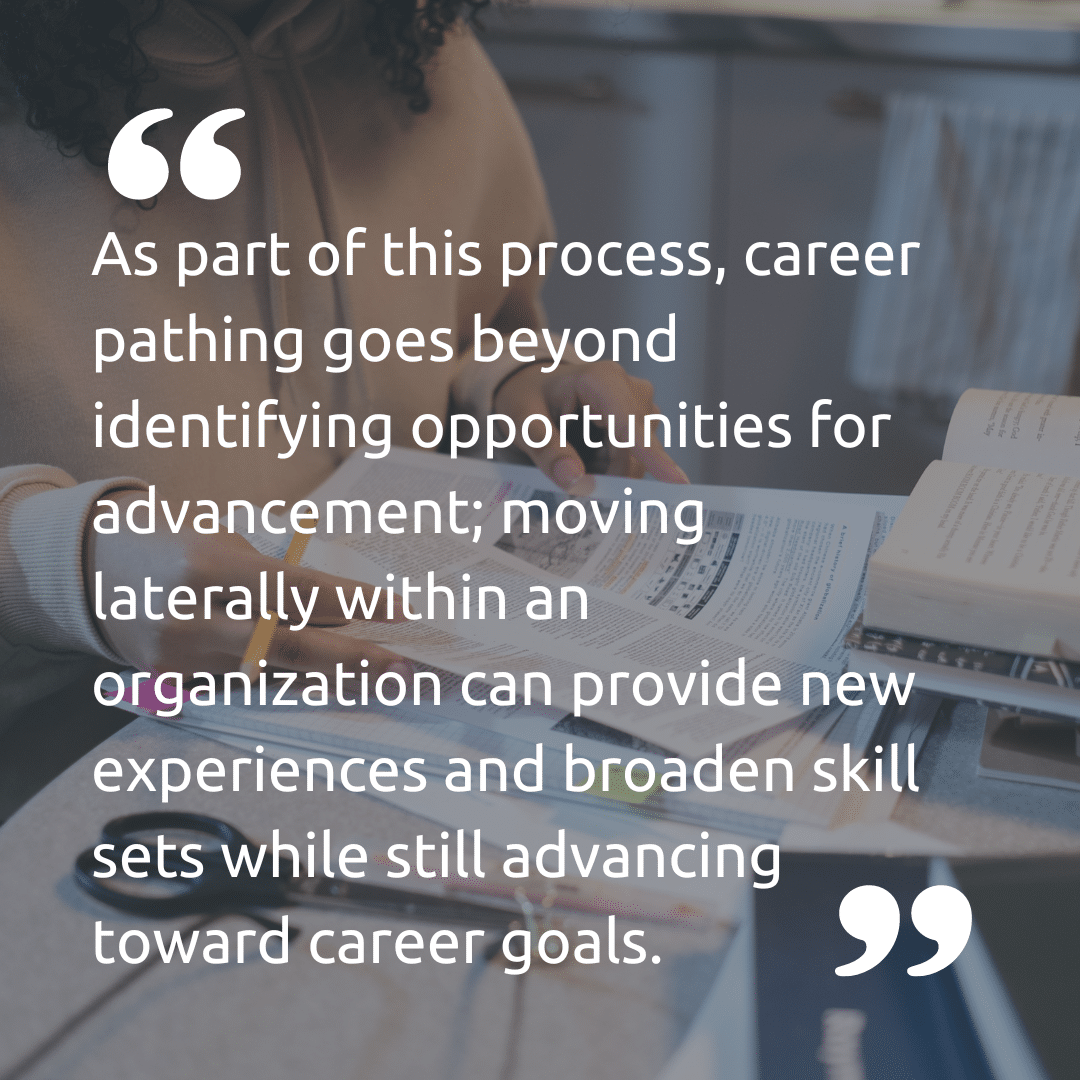The STEM talent crisis is well known around the world, and STEM-qualified workers are in short supply almost everywhere. In Europe, close to half of companies have difficulty recruiting STEM workers. Across all of Darwin’s industries – Deep Tech, Renewable Energy, Life Science, Engineering (civil, structural, automation), and Space and Defense – this sentiment is echoed by hiring managers and decision-makers. As a result of this crisis, decision-makers recognize the importance of developing the next generation of leaders to ensure long-term success.
The current job market is a competitive one and individuals are always looking for better and new career opportunities. If employers don’t cater to job seekers’ needs, they risk losing skilled professionals and incurring additional costs. Employees seek growth opportunities as one of their main goals. They also expect to have access to the right tools to enable them to do their best work. Creating an enabling environment starts with keeping employees engaged and motivated.

Embrace a Learning Culture
Developing leaders from within not only fills the leadership gap but also boosts employee morale and loyalty. The internal leadership team is already familiar with the company’s culture and operations, which can make transitions easier and lead to better results.
This article examines how businesses can foster a culture of learning within their companies, which is crucial for employees to acquire new skills and knowledge relevant to their jobs. These learning programs, which are not limited to, but include training and development programs, internal knowledge-sharing platforms, mentorship and coaching programs and self-directed learning can help to equip potential leaders with the skills they need to take on more responsibilities.
Identify and Create Platforms for Growth
The next step is to create opportunities for employees to lead projects or initiatives once learning opportunities have been identified. One way to do that is to encourage them to take on tasks that go beyond their current roles. Developing practical leadership skills requires hands-on experience, so place them in real business situations where mistakes can be made, owned and rectified
As part of this process, career pathing goes beyond identifying opportunities for advancement; moving laterally within an organization can provide new experiences and broaden skill sets while still advancing toward career goals. During interviews, employers can discover hidden talents and interests that might prove useful to employees’ career goals and to the company itself.
A Culture of Continuous Feedback
It’s common for people to avoid facing their shortcomings and this is true for companies as well. However, well-delivered, thoughtful constructive feedback can act as a catalyst for healthy work environments and boost productivity and engagement. A new culture of improvement and success can be created by facing our resistance and aversion to feedback and practicing the art of giving and receiving criticism. A culture of continuous feedback involves several steps, including developing a growth mindset, providing feedback training, setting a positive tone and creating a feedback-safe environment. Establishing clear expectations around feedback is an important part of sustained change. Anonymous feedback should also not be underestimated in order to gain a complete picture.
How Mentorship Aids Self-Reflection
Mentorship programs are becoming increasingly popular, with 92% of Fortune 500 companies offering them in 2023, compared to 84% the previous year. In many cases, the ability to find and nurture a mentorship relationship directly impacts career development opportunities. The purpose of mentoring is to foster self-reflection; evaluating your experience and performance, reflecting on challenges faced and how they were overcome, all of which are crucial to the development of effective leadership. The presence of a skilled mentor provides a quiet place for reflection on issues, on one’s self, on interactions with others, and on systemic issues at work. Mentors who are experienced can also critically reflect on their own practice and develop their own skills. To guide and support emerging leaders, it’s advisable to implement a mentorship program if your business doesn’t already have one.
Becoming an Effective Leader
The process of becoming an effective leader involves many facets including relationship building, agility, adaptability, fostering creativity, and improving decision-making and critical thinking, as outlined in our article ‘How to Become an Effective Leader‘. Providing active support in these growth journeys will help your future leaders to develop the skills they need to take on new responsibilities.
Nurturing Your Future Leaders
We can become distracted by talent acquisition and provide great candidate experiences if we neglect existing talent and do not invest in them as much as we do in new talent. Business growth is dependent on both talent acquisition and retention. Leaders don’t emerge from nowhere – they must learn the skills that make them great leaders. Providing support does not mean agreeing with every course of action, but it is important to demonstrate trust and respect as they learn, building their confidence. You can enhance their skills and guide them through challenges, but if your future leaders don’t believe in themselves, their leadership will only exist in title. Taking ownership and maintaining good feedback loops cultivate confidence and humility to admit mistakes and take responsibility for them[12]. When mistakes are made, employees quickly learn whether their managers will support them or throw them under the bus; if it’s the latter, they won’t be willing to take healthy risks, stifling innovation.
A great leader is willing to delegate and empower others on the team. Stepping back requires striking the right balance. You might be surprised by their response if you give them the opportunity to take responsibility. Building trust and developing tomorrow’s leaders takes time: don’t rush the process. However, focusing on developing soft skills and leadership within your organization will enhance your team’s capabilities, build stronger relationships and foster a culture of continuous improvement. Invest in the solutions we discussed to boost your company’s long-term success and watch your business thrive with a competent and robust leadership team.





